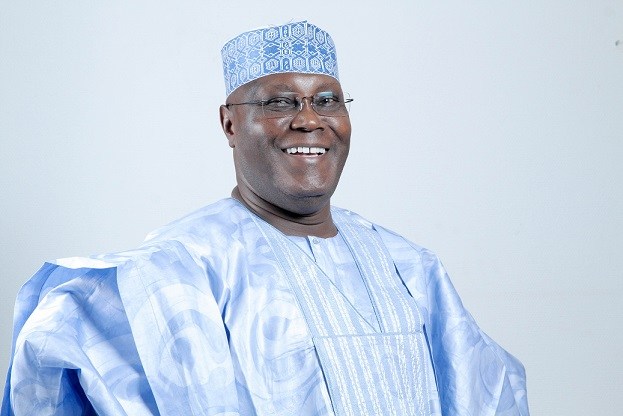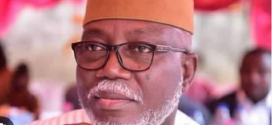By Hope Eghagha
Early in 2018 when Mallam Atiku Abubakar began to reference restructuring the nation’s polity as one of his cardinal goals I thought I should take him seriously. As a man from the Niger Delta whose region has been fundamentally shortchanged by the current quasi-federal arrangement I naturally took interest in this core northern leader who had decided to make restructuring a campaign issue. Middle of last year I tried through some of his aides to reach him. No luck. He was either too busy or the aides I reached did not have the clout to arrange a meeting. So I let it rest. Once Atiku Abubakar secured the PDP’s nomination as presidential candidate I thought I should use this medium to broach some of the issues I would have presented to him.
Let me state from the outset that we do not need a prophet to tell us that President Muhammadu Buhari is not interested in the restructuring matter. This is clear from the way he handled the Mallam El Rufai Committee report on restructuring. Although it was submitted to the APC hierarchy the president quickly threw it into the dustbin. Indeed Atiku could pick up that document and implement some of the recommendations within the first two years of his administration if he wins the election. At the core of my presentation is the question: what does Atiku want with restructuring? Does any state or part of the country stand to lose if the country is redefined along properly federalist lines?
To re-structure a group, a union or a company or a country means to re-arrange the terms and manner of engagement. Restructuring could be minor or fundamental. It is also important to state that even when it is very clear that a union needs to be re-examined for better performance there still would be objections from some quarters because of entrenched interests. People do not like to leave their comfort zones. Power holders who are determined must have the will and clout to tell the rest that rejigging a system would ultimately benefit the entire nation. No state or region would be shortchanged in a restructured federation. Indeed all states stand to gain ultimately. The Lagos model is clear for all to see. Lagos has harnessed its strengths for the overall benefit of the state. Very early it created administrative units as a direct challenge to the federal authorities. Although the rigid provisions of the constitution have made recognition of the Development Councils impossible Lagos still operates them. The Federal Government really should have no business with the number of local governments which a state has as long as they can be funded by the state in question.
For those who have been involved in administering this country, the current configuration is near impossible to manage. A behemoth usually develops an unhealthy bureaucracy that could ultimately undermine its survival.The first problem therefore is that the sheer geographical size makes efficient management impossible, particularly under a unitary form of government. How to reduce the federal burden should be one of the cardinal objectives of the Atiku administration if he wins the election next year. A truly federal arrangement should be the best option for a successful Nigeria. I suppose after serving as Vice President under Chief Olusegun Obasanjo and from discussions and consultations it has become clear that Nigeria as currently administered will not make any real progress. The time for real change has come. It should not be a campaign slogan.
The bureaucracy involved in running Nigeria is simply outrageous. Pause for a minute and reflect on the monthly overheads to civil servants both at the federal and state levels. The civil service is not up to five per cent of the population. But we spend about 70 per cent of the budget paying salaries to these compatriots across the country. Certainly the system could be better. If funds are properly channeled into the private sector and a conducive atmosphere is created for individual growth the economy would fare better and there would be more funds for capital development.
The attraction of the current management structure is the monthly ritual of sharing money monthly, called revenue distribution. This has to stop. And we have to give ourselves a timeframe. But concrete plans should be put in place to reduce the level of apprehension of states that believe that they do not have the resources to survive a new financial arrangement. The time to start is now. A national team should be put together that would work out the gradual implementation of a restructured financial system for the country. At the core of it is the need to allow each part of the federation to develop its resources and pay taxes to the Federal Government. With the necessary will the National Assembly can tinker with the Constitution of the Federal Republic. I propose a take-off grant for all the states with a mutually-agreed deadline that subsequently the current system will have to cease.
The Federal Government cannot successfully police the states as they currently are. Regional or state police with well-defined federal crimes or jurisdictions should be developed. It should not be the duty of the Inspector General sitting in Abuja to fish out criminals in my hometown Mereje or Ado Ekiti or Eruemukowhoarien or Kaura Namoda. It should be the duty of the local police, headed by a local officer appointed by local head of administration. His job would always be at stake if crime goes up beyond acceptable limits. His commitment would be local, not an abstract Federal Government. As a result he would be compelled to give his best. State and local government police should be the ultimate goal of a federal state. Apart from strengthening the security architecture it would also create jobs and make policing communal.
One of the biggest dilemmas of our federal system is how to enthrone or elect officials from north or south of the country to national office without entrenching mediocrity. We spend billions of naira every four years to elect a president, the governors, and National Assembly. In a restructured Nigeria, the federating regions should decide who should become national president from amongst the elected officials from the zones. The real power therefore would be in the constituent parts of the federation. Development will be more competitive. Why not think of a system in which the federal powers are reduced to external defence, currency (monetary policy), and foreign affairs? What business has the Federal Government constructing and maintaining roads inside Sapele or Benin or Sokoto or Lagos?
Education is another fundamental area where restructuring should take place. The Federal Government should have no hand in running secondary schools or opening new universities. All secondary schools under the control of the Federal Government should be handed over to the states where they are located. The states could decide to do whatever with them. The Federal Government should be concerned with overall policy development and monitor implementation. The federal universities are seriously underfunded because resources are spread into wasteful areas.
Finally, at the bottom of all of this is the fact that we have been doing things in a particular way without any positive results. It does not make sense to continue doing things the same way. Let each constituent part of the federation develop resources over which they have comparative advantage. Once this atmosphere is created Nigeria’s full potentials would be achieved. I greet you and hope that a new spirit shall enter whoever occupies Aso Rock from next year! As my people say, Misiagware!
 Hottestgistnaija.com
Hottestgistnaija.com





